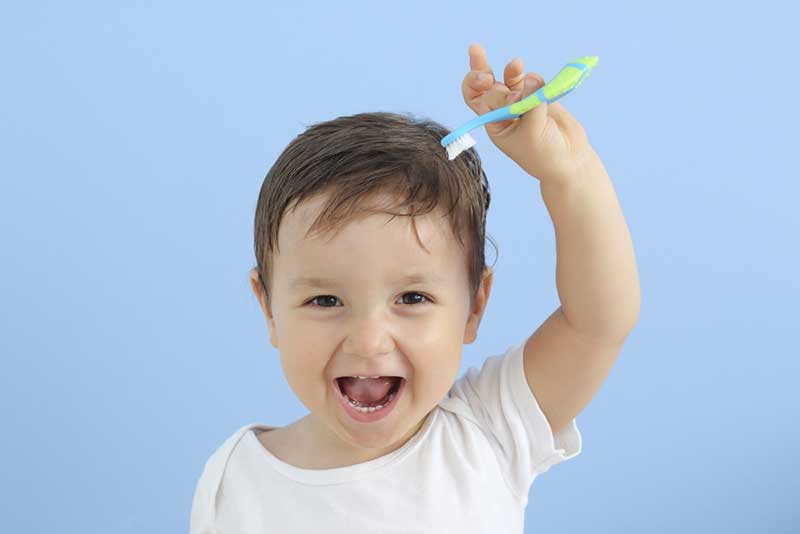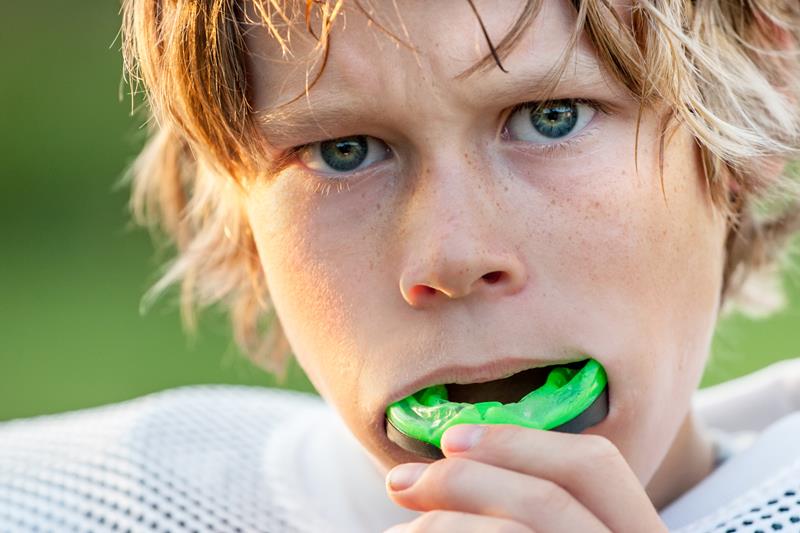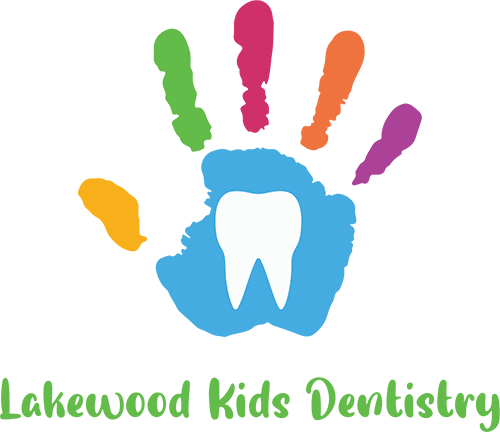

Pediatric Dentistry
What is the difference between a pediatric dentist and a family dentist?
Pediatric dentists are the pediatricians of dentistry. A pediatric dentist has two to three years specialty training following dental school and limits his/her practice to treating children only. Pediatric dentists are primary and specialty oral care providers for infants and children through adolescence, including those with special health needs.

Preventative Dentistry
You want to protect your child’s health. While you can’t ensure they’ll never get injured or sick, you can be proactive about safeguarding their oral health, and Davette Johnson-Harris, DDS, at Lakewood Kids Dentistry in Houston, is here to partner with you. With years of preventive dentistry experience serving kids of all ages, she helps you protect your child’s teeth and mouth. Get started with preventive dentistry by calling the office or by booking your child’s appointment online.
What is preventive dentistry?
With an emphasis on preventive dentistry for each of her patients, Dr. Johnson-Harris strives to ward off oral health problems before they arise. Through regular dental cleanings and checkups, sealants, fluoride and silver diamine fluoride, plus personalized care based on the needs of your son or daughter’s unique mouth, she helps them keep their teeth and mouth as clean and healthy as possible.
With preventive dentistry, Dr. Johnson-Harris takes proactive measures to avoid:
- Cavities
- Gum diseases like gingivitis or periodontitis
- Weakened tooth enamel
- Tooth sensitivity
- Halitosis (bad breath)
How does preventive dentistry work?
One of the keys in successful preventive dentistry is regularly visiting Lakewood Kids Dentistry. Dr. Johnson-Harris can only keep your child’s teeth healthy when she has regular opportunities to thoroughly check them.
Routine visits to her office allow her to identify any potential issues, like tooth decay or gum inflammation, early on. This way, she can employ treatment when it’s most effective. And, because the issue is addressed before it has had the opportunity to advance, the early treatment also saves your child from complications like toothaches and gum sensitivity or uncomfortable dental procedures.
During a preventive dentistry appointment, your child can expect:
- A visual exam of their teeth, gums, lips, cheeks, and throat
- A professional cleaning and polishing
- X-rays — as needed
- Answers to their questions about their teeth
Generally, Dr. Johnson-Harris recommends that her patients come in every six months. But she tailors her recommendations to your child’s mouth. For example, if she notices the beginnings of gum disease, she may recommend more regular appointments as she works to stop the spread of the disease and restore health to your child’s gums.
Is preventive dentistry just for kids?
No, of course not, but part of Dr. Johnson-Harris’s goal with preventive dentistry is to set her patients up for a lifetime of oral health. Getting them in the habit of biannual dental appointments at a young age encourages them to continue regularly visiting their dentist as adults.
She also uses each appointment to help her patients develop healthy at-home preventive practices. This includes properly brushing their teeth at least twice a day, flossing in between every tooth, and making good food choices to protect their enamel long-term. Dr. Johnson-Harris believes that teaching kids about their oral health now supports lifelong oral hygiene.
To get started with preventive dentistry at Lakewood Kids Dentistry, call their office or schedule your child’s appointment online.

Sedation Dentistry
We have recommended sedation for your child’s safety and comfort during dental procedures. Sedation can help increase cooperation and reduce anxiety and/or discomfort associated with dental treatment. Various medications can be used to sedate a child; medicines will be selected based upon your child’s overall health, level of anxiety, and dental treatment recommendations. Once the medications have been administered, it may take up to an hour before your child shows signs of sedation and is ready for dental treatment.
https://www.aapd.org/globalassets/media/policies_guidelines/r_prepostsedation.pdf

Emergency Dentistry
Dental emergencies are more common than you might realize: Every year, more than 5 million teeth are knocked out in the United States. If your child breaks or knocks out a tooth, you can count on expert care from Davette Johnson-Harris, DDS, at Lakewood Kids Dentistry in Houston. Dr. Johnson-Harris is an expert pediatric dentist who offers emergency dentistry services to protect and preserve your child’s teeth and overall dental health. Call Lakewood Kids Dentistry or make an appointment online today.
As a parent, you know that accidents happen, ranging in severity from spilling juice on the rug to tripping and knocking out a tooth. Some of the common dental emergencies that stem from accidents include:
- Knocked-out teeth
- Broken teeth
- Severely bitten tongues and cheeks
Your child could also get a foreign object stuck on a tooth or even break their jaw.
How do I know if my child needs emergency dental care?
Dr. Johnson-Harris provides emergency dental care for a wide range of dental injuries. For example, if your child knocks out a tooth, even a baby tooth, you should contact Lakewood Kids Dentistry for advice. Similarly, if your child breaks a tooth, whether it’s a small crack, or a large piece of a tooth is missing, they need emergency dentistry.
Additionally, if your child’s mouth is bleeding heavily and isn’t stopping, you need emergency dental care.
What should I do if my child knocks out a tooth?
If your child knocks out an adult tooth, pick up the tooth — without touching the root — and put it in a sealed container of milk or an American Dental Association-approved tooth preservation product. Baby teeth don’t need to be kept moist, but you should still find the tooth and bring it with you.
Call Lakewood Kids Dentistry to let Dr. Johnson-Harris know you’re coming, and give the details of your dental emergency. You can have your child bite down on clean gauze to stop any bleeding.
During the appointment, Dr. Johnson-Harris:
- Examines your child’s teeth, gums, and jaw
- Explains the injury and treatment options
- Reimplants the tooth or repairs the injury
- Provides aftercare instructions
- Schedules appointments for any additional treatment
Knocking out a tooth can be scary, but Dr. Johnson-Harris puts you and your child at ease. She explains your treatment options and answers questions so both you and your child feel comfortable and confident.
How can I prevent dental emergencies?
You can take steps to protect your child’s dental health and prevent dental emergencies. For example, encouraging good dental hygiene, including brushing twice a day and flossing at least once a day, helps keep your child’s teeth strong and healthy.
Additionally, don’t let your child put non-food objects into their mouth. You can prevent falls by using gates to block stairways and other hazards in your home. Also, if your child plays sports, make sure they wear a protective mouthguard and helmet (when appropriate).
If your child needs emergency dental care, call Lakewood Kids Dentistry or try to schedule a same-day appointment online. You can also call the office outside of regular business hours for emergency care.

Frenectomy
Frenectomy is a surgical procedure that involves the removal of a small piece of tissue called the frenum, which connects the lips, tongue, or cheek to the gums. In children, this procedure is often recommended when the frenum restricts normal oral function, leading to issues such as tongue tie or lip tie. Frenectomy can help improve speech, breastfeeding, and overall oral health.
- Improved speech development
- Enhanced breastfeeding experience for infants and mothers
- Prevention of dental issues and gum recession
- Greater comfort and range of motion for the tongue and lips
Is Frenectomy Right for Your Child?
Determining whether Frenectomy is necessary for your child requires a comprehensive examination by a skilled pediatric dentist like Dr. Johnson-Harris. During your consultation, we will assess your child's oral health, discuss your concerns, and provide personalized recommendations.
The Frenectomy Procedure:
Dr. Johnson-Harris uses advanced techniques and equipment to ensure a safe and comfortable Frenectomy experience for your child. The procedure is typically quick and minimally invasive, with a focus on reducing discomfort and promoting a swift recovery.
Post-Procedure Care:
We will provide you with detailed post-procedure care instructions to ensure a smooth recovery for your child. Our team is always available to address any questions or concerns you may have.
Contact Lakewood Kids Dentistry:
Ready to schedule a consultation with Dr. Johnson-Harris for a Frenectomy evaluation? Contact us today, and our friendly team will assist you in setting up an appointment.
At Lakewood Kids Dentistry, we are dedicated to improving the oral health and well-being of your child. Dr. Johnson-Harris's expertise in Frenectomy procedures ensures that your child receives the highest quality care. Trust us to provide a compassionate and effective solution for your child's oral health needs.

Baby Teeth
Primary, or "baby," teeth are important for many reasons. Not only do they help children speak clearly and chew naturally, they also aid in forming a path that permanent teeth can follow when they are ready to erupt.

Sealants
Sealants work by filling in the crevasses on the chewing surfaces of the teeth. This shuts out food particles that could get caught in the teeth, causing cavities. The application is fast and comfortable and can effectively protect teeth for many years.

Mouthguard
You know that your child’s involvement in a sport is helping them build healthful habits for life, but you also know it exposes them to injury risks. Fortunately, Davette Johnson-Harris, DDS, helps her patients at Lakewood Kids Dentistry in Houston, lessen that risk through custom-fitted mouthguards. To get your child the right mouthguard for their mouth and activity level, call Dr. Johnson-Harris’s office or book an appointment online.
Parents often associate mouthguards with high-impact sports like wrestling and football. But most forms of physical activity pose some risk to your child’s teeth. Getting them a comfortable, custom-fitted mouthguard they can wear during sports protects their smile and saves them from the potential pain of tooth damage.
Dr. Johnson-Harris recommends children wear mouthguards when they’re involved in any sport where their body will be moving at a high speed, including:
- Baseball
- Basketball
- Football
- Lacrosse
- Field hockey
- Ice hockey
- Wrestling
- Boxing
- Gymnastics
- Skateboarding
- Mountain biking
- BMX biking
- Rollerblading
What’s the difference between a custom-fitted mouthguard and one I buy at the store?
If you have a hard time getting your son or daughter to wear their mouthguard, it might be because they don’t have the right type. An ill-fitting mouthguard feels clunky and uncomfortable. It can even feel like it inhibits their ability to breathe.
That’s why Dr. Johnson-Harris offers custom-fitted mouthguards. Using her extensive knowledge of your child’s teeth, she shapes a mouthguard to fit as comfortably as possible. In fact, with this type of mouthguard, they might even forget they’re wearing it.
The custom fit delivers more than increased comfort, too. When the mouthguard is precisely made for your child, it delivers optimal protection to each tooth.
Can my child wear a mouthguard if they have braces?
Absolutely. Dr. Johnson-Harris is seasoned at creating mouthguards that fit comfortably over braces. In this way, she protects the progress your child is making toward a straight smile — and your investment in their teeth.
As an added benefit, these mouthguards cushion the soft tissue in your child’s mouth against damage from the wires and brackets in their mouth.
If your son or daughter wears a retainer or any other removable oral appliance, make sure they remove it before putting in their mouthguard and playing their sport.
Your child is more likely to wear a mouthguard to protect their teeth if it’s comfortable. Get them the best fitting, most minimally obstructive mouthguard possible by calling Lakewood Kids Dentistry or booking an appointment with Dr. Johnson-Harris online.

Dental X-Ray
Dental X-rays provide the only means for dentists like Davette Johnson-Harris, DDS, to observe the health of the internal parts of your teeth and the areas between them. Dr. Johnson-Harris offers thorough dental care at Lakewood Kids Dentistry in Houston, including X-rays, on an as-needed basis to maintain your dental well-being. If your child is due for a dental checkup or haven’t had dental X-rays in more than two years, call the office or schedule an appointment online.
For preventative dental care, dental X-rays are an essential tool. Only a small portion of your teeth is visible to the naked eye, so X-rays help Dr. Johnson-Harris to examine your teeth carefully, inside and out.
For instance, an X-ray can be helpful for Dr. Johnson-Harris to monitor the insides of your teeth to see if they show signs of disease that may be lurking under a filling. Also, if any decay is present between your teeth, Dr. Johnson-Harris can see it. X-rays remain the most efficient way to determine if you are suffering from bone loss due to gum disease.
With dental X-rays, Dr. Johnson-Harris can diagnose dental conditions and plan the placement of dental implants, orthodontic treatments, and other dental procedures.
When should I have dental X-rays taken?
With good dental health, you should only need standard bitewing dental X-rays every two to three years. Every three to five years, more comprehensive X-rays are necessary to ensure the roots of your teeth and the surrounding bone are healthy.
Children need dental X-rays more often because of their growth rate. X-rays help dentists see if children’s teeth require orthodontic intervention and whether the teeth are developing properly.
During dental X-rays, your child wears a lead blanket. They bite down on a soft plastic device that keeps their teeth still and in the correct position. The dental assistant, steps out for the mere seconds needed to take the X-ray. The process is repeated to get clear images of all your child’s teeth from several angles.
Is it safe to get dental X-rays?
Dental X-ray exams are safe for men, women, and children. X-rays do transmit a small quantity of radiation to take the scans of your teeth and bones, but this puts you at almost no risk. The amount of radiation is too small. Advances in dental technology have reduced the amount of radiation needed with every new iteration of a dental X-ray machine.
Dentists and their team typically take 10-15 X-rays a day. Although they leave the room while the image is taken, they're exposed to some radiation. Still, dental professionals do not get cancer at a higher rate than any other profession.
You can still have X-rays if you’re pregnant. Dr. Johnson-Harris shields you with a unique apron and thyroid collar as a precautionary measure.
Book an appointment online or call today if it’s time for a dental checkup or you haven’t had dental X-rays in more than two years.

Special Needs Dentistry
The American Academy of Pediatric Dentistry (AAPD) recognizes that providing both primary and comprehensive preventive and therapeutic oral health care to individuals with special health care needs (SHCN) is an integral part of the specialty of pediatric dentistry.1 The AAPD values the unique qualities of each person and the need to ensure maximal health attainment for all, regardless of developmental disability or other special health care needs. These recommendations were intended to educate health care providers, parents, and ancillary organizations about the management of oral health care needs particular to individuals with SHCN rather than provide specific treatment recommendations for oral conditions.
